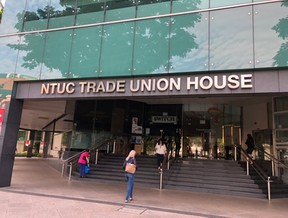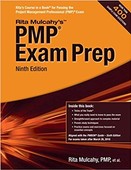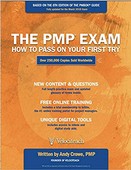If you google PMP you will see that it is not an easy certification exams to pass and also highly sort after. The reason it is difficult is because it required not just project management experience but also clear understanding of the project management process and framework as the exams is focused on the application and situation. It took me exactly four months from completing my PMP® course to passing my PMP® certification exams. I told myself after I passed the exams, I will share my experiences online to help the others going through the same journey. So here is a guide to my journey from studying, applying to passing my PMP® exams. This Part 1 of my journey. Part 2 My Study Regime can be found here.
Background
I have been involved in projects ever since started working where I help develop the airline first e-commerce website and later I become its Head of Commercial IT looking after its migration from its legacy passenger systems to the more advanced Altea passenger systems developed by Amadeus.
Project management has always been an area of interest for me as such I took up a project management PMP® course conducted by PMI in 2002. I had a bit of time after I left my job in Jan 2018, I decided to pursue my certification. I enrolled for my course on 16 Apr 2018 took the exam on 16 Aug 2018. I was lucky enough to take the new PMP exams based on PMBOK® Guide 6th Edition applicable for those taking it from 25 March 2018 which include new materials such as new emerging practices such as Agile, leadership skills.
PMP® certification process
Requirements for the PMP® certification exams is pretty exhaustive, so you should have a solid experience as project manager and be committed to the certification process. The average time required to pass the exams is around 2 to 6 months with 3-4 hours of studies every day. The requirements are as follow:
-
Must have at least 3-5 years of experience leading and directing cross-functional project teams and responsibility for project delivery
-
Project Management Experience (4500 hours for degree holders / 7500 hours for diploma holders)
-
Earner must have minimum of 35 hours of formal project management education
-
Successfully complete the 200 multiple-choice questions, 4 hour PMP® certification exam
-
Earn 60 professional development units (PDUs) every three years to maintain the PMP certification.
PMP® Courses
As you can see from the list, you will need 35 hours of formal project management education recognized by PMI. You can either choose the many popular online courses such as PM PrepCast or Udemy or one classroom based courses by leading providers in Singapore such as Comat, NTUC Learninghub or NUS ISS.
I took the course run by NTUC LearningHub (LHUB) which is located centrally at Bras Basah. The advantage of using them is they are a IMDA (Infocomm Media Development Authority) endorsed Course Provider which means you claim further funding under scheme such as CITrep + (Critical Infocomm Technology Resource Program Plus) to offset your exam or certification fee (up 70% or max of $500) . They are also as SSG-CET centre as such you will only need to pay net fee after your Skillsfuture grant. The original course cost about SGD$1,600. However, if you are a Singapore Citizen you are subsided by Government under the Skillsfuture grant depending on your age. Singapore Citizen above 40 like myself only need pay about SGD$260 and you can use your Skillsfuture credits of SGD$500 to offset this amount. This means you do not even need to come out with any cash for the course. This is really affordable as most people spend an average close to SGD $2,000 for a PMP® certification.
Upon completion of the course, students will also be awarded with these National Infocom Competency Framework (NICF) Statement of Attainments (SOA): IT-PM-403S-1 Manage project scope & IT-PM-406S-1 Manage project risk to confirm that they have attained the 2 competencies. Therefore you will have still have these two SOAs these even if you decides not to take the PMP® exams.
Exams Application Process
If you decides to pursue the certification exams, you will also need to pay an exam fee of US$405 for PMI members and non-members US$555. The cost of PMI member is US$129 and other than discount for the PMP® exams, you will also be able to download the latest version of the PMBOK® Guide for free plus in unfortunate event you failed your PMP® exams you can retake the exams at a lower rate of US$275 instead of US$375.
Filling the application form which is done online is also not an easy task. This is because you are required to submit all the projects you have handled during the required project experience period as well calculate the time spent on them breaking down based on the different project management process groups. You will also need to list down the names of supervisor in event you get audited they will be contacted to verify these projects.
The trick to fill up the form is to use PMI terms, this will help the approval process as this demonstrates clear understanding of the project management principles. After submitting the forms online you will need to wait about 5 working days, and it is approved you will be asked to pay to PMP exam and after payment you can schedule an exam with Prometric the exams provider used by PMI. I was lucky enough not to be audited, however some of course mates did get audited and you will need to make sure all documents are in order and get your supervisors listed in form to signed them.
My PMP® Course and Preparation for the Exams
I opted 5 days weekday course instead of the 5 week-ends course as wanted to complete as soon possible without losing my study momentum. I half expected the course to be dry and technical however I was happy that my instructor Jeffry Foo made the course interesting and enjoyable. If you are unsure of which course to take I would highly recommend LHUB as not only the fees are competitive you will also receive a copy of the Rita Mulcahy’s book which cost about USD$88 or about SGD$120. There was a test on the last day of course as part of the NICF requirement to attain the SOAs which Is not difficult. However, I only did slightly better than pass about 60%.
For my exams preparation, I basically relied on my NTUC notes, Rita Mulcahy’s “PMP® Exam Prep 9th Edition:” provided LHUB, “How to Pass on Your First Try, Fifth Edition book by Andy Crowe and websites such as Edward-designer.com. For practice exams questions I use the questions in the Rita and Andy Crowe books as well as the free simulators available.
A lot of people and website also recommend “Head First PMP: A Learner’s Companion to Passing the Project Management Professional Exam”. I borrowed one from the public library however I find it difficult to read as I find a bit unstructured with its drawings and diagrams and it is not easy to relate it to the PMBOK®. I personally prefer the style used in Andy’s book to better understand the PMBOK® foundation as it is easy reading and written in a way to contains only the necessary knowledge for the PMP exam (similar to how I prepare my exams when I was younger). However, I find that this book is not sufficient for PMP exams as it did not elaborate key process and concepts sufficiently which you need to understand to answer the many situational questions from the exams.
This is where Rita book comes in handy in my final weeks of preparation for the PMP® exams where I refer to the book for a more comprehensive explanation of the concept as well as the process. However, it does have its weaknesses as it does not cover ITTOs in details and did not quite follow the PMBOK® process using its own process flow called – RITA process chart. I did try read through the PMBOK® once but I find a bit too dry and difficult to understand and not so useful for the exam preparation which required thorough understanding and not just memorizing PMBOK terms.




